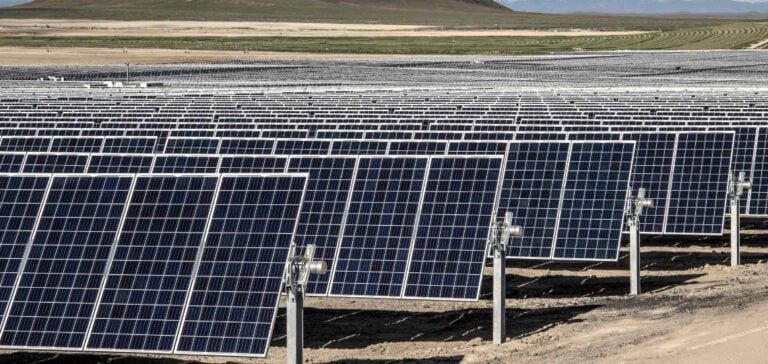Electricity production in the member countries of the Organization for Economic Cooperation and Development (OECD) reached 981.9 TWh in August, registering a 1.1% increase compared to the previous year, according to the latest report published by the International Energy Agency (IEA). This growth is primarily attributed to a strong expansion of renewable energies, particularly solar and wind.
Solar energy experienced a dramatic surge of 27.3%, solidifying its growing role in the energy mix of OECD countries. This trend was observed across all regions. In the Americas, solar production rose by 32.2%, while Europe and Asia Oceania recorded respective increases of 28.8% and 16.8%. Renewables accounted for 32.4% of OECD’s total production, up 7.6% from August 2022.
A Decline in Fossil Fuels
Despite the growth of renewables, fossil fuels continue to significantly contribute to the energy mix of the OECD, representing 51.5% of total production in August, or 505.3 TWh. However, this share decreased by 3.2% compared to the previous year. This decline is mainly due to a 6.5% reduction in electricity produced from coal.
The Americas recorded a notable 12.9% drop in electricity production from fossil fuels, while Europe saw a significant decrease of 16.9% in natural gas-based production.
Nuclear Energy Slightly Increases
The share of nuclear energy in the OECD energy mix slightly increased, reaching 15.8%, a 3.2% year-on-year rise. Europe played a key role in this increase, with a 13.5% rise in nuclear production. In contrast, the Americas and Asia Oceania saw respective declines of 0.3% and 6.8%.
Globally, India, although not part of the OECD, significantly boosted its nuclear production, achieving a 25.7% year-on-year increase. This growth stems from continued efforts to diversify its energy mix and enhance nuclear capacity, marked by the commissioning of new reactors.
Perspectives and Challenges
While solar and wind energy continue to expand rapidly, the energy transition in OECD countries highlights the challenges associated with the gradual reduction of dependence on fossil fuels. The growth of renewables underscores the increasing potential for a more sustainable global energy system, although further efforts are required to balance grid stability and the variability of these energy sources.





















